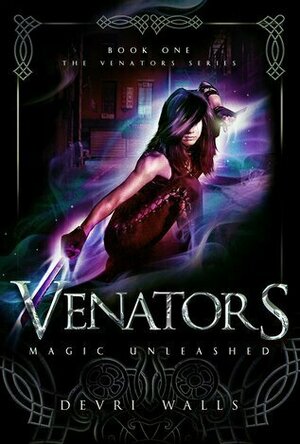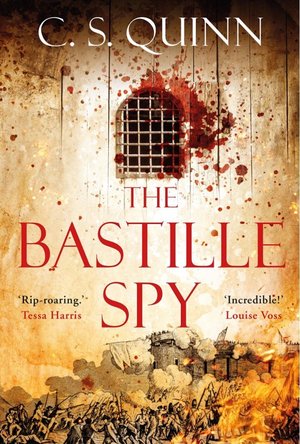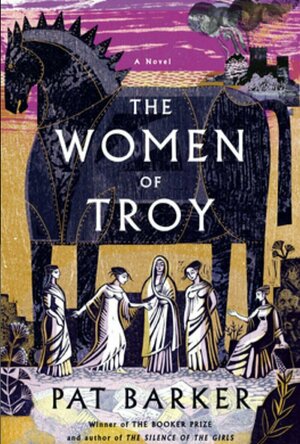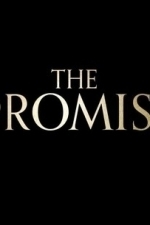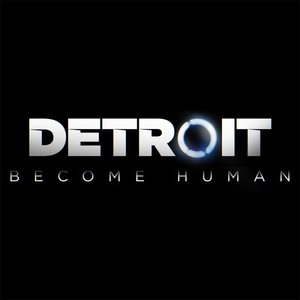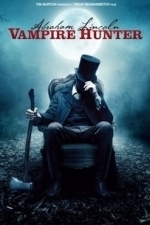Search
Caffeinated Fae (464 KP) rated Magic Unleashed in Books
Mar 12, 2020
Fast Paced with some problems
TW: Sexual Assualt, Child Abuse, Abuse, mention of slavery, mention of forced prostitution, Victim blaming verbiage.
When I was approached about this book tour, I knew I needed to jump in. Magic Unleased is right up my alley, and I couldn't wait to get started. I ended up low on time, so I snagged the audiobook so that I could read it while reading a few other books in between. The narrator did a good job of portraying the characters, though, at times, his voice bordered on monotone.
Devri Walls sure knows how to write a vast world. The descriptions were great, and at times I felt like I was walking around with Rune & Grey. The setting itself was well done, and I liked to see the author's interpretations of the supernatural characters. My favorite was how the fae were portrayed. They weren't sweet, helpful things but tricksters. I just loved it.
The characters were also well done. I wanted to get to know more about Grey and Rune, and I liked seeing how they interacted with all of the characters. I enjoyed the side characters, as well. It seems like everyone, for the most part, was three dimensional. I will admit, I struggled with how young Grey & Rune acted though this is more of a me issue and not a book issue.
The one thing that didn't sit well with me was some of the victim-blaming verbiages in a specific scene. I felt that the character had every right to be upset, and I feel like she was gaslit because she didn't just accept that something "had" to happen. This scene soured me on the book, and I have to admit, I almost DNFd right then and there. After that scene, I started to notice just some of the ways that Rune was treated, and I hated how she was consistently berated instead of helped.
Though I did find some faults with this book, I ended up pushing through. In the end, I enjoyed the world that created. It was fun to see a more sinister side of faeries, and I enjoyed how fast-paced the plot was. I'm not sure that I will continue in the series, but I do understand why so many people have enjoyed it.
When I was approached about this book tour, I knew I needed to jump in. Magic Unleased is right up my alley, and I couldn't wait to get started. I ended up low on time, so I snagged the audiobook so that I could read it while reading a few other books in between. The narrator did a good job of portraying the characters, though, at times, his voice bordered on monotone.
Devri Walls sure knows how to write a vast world. The descriptions were great, and at times I felt like I was walking around with Rune & Grey. The setting itself was well done, and I liked to see the author's interpretations of the supernatural characters. My favorite was how the fae were portrayed. They weren't sweet, helpful things but tricksters. I just loved it.
The characters were also well done. I wanted to get to know more about Grey and Rune, and I liked seeing how they interacted with all of the characters. I enjoyed the side characters, as well. It seems like everyone, for the most part, was three dimensional. I will admit, I struggled with how young Grey & Rune acted though this is more of a me issue and not a book issue.
The one thing that didn't sit well with me was some of the victim-blaming verbiages in a specific scene. I felt that the character had every right to be upset, and I feel like she was gaslit because she didn't just accept that something "had" to happen. This scene soured me on the book, and I have to admit, I almost DNFd right then and there. After that scene, I started to notice just some of the ways that Rune was treated, and I hated how she was consistently berated instead of helped.
Though I did find some faults with this book, I ended up pushing through. In the end, I enjoyed the world that created. It was fun to see a more sinister side of faeries, and I enjoyed how fast-paced the plot was. I'm not sure that I will continue in the series, but I do understand why so many people have enjoyed it.
ClareR (6096 KP) rated The Bastille Spy in Books
Aug 1, 2019 (Updated Aug 1, 2019)
A very enjoyable historical spy adventure!
England’s best spy, in this novel set in only just pre-Revolution Paris (1789), is Attica Morgan. Yes, in a time where a woman was deemed to be the fairer, weaker sex, Attica is a ruthless, all-action spy in His Majesty’s Government. And I loved her.
I’ve no idea how likely this would have been, and largely speaking, I don’t actually care. This book is non-stop action, as Attica is asked to investigate the murder of a rebel in the Bastille. She sees how dangerous Paris is becoming, and how the French royal family really don’t care about their poorer subjects. Attica teams up with a Privateer/ Pirate to complete her mission - and I found myself wondering (and hoping - see point 2):
1. When the next book will be coming out*, and
2. Will he be in it!
*for the record, I know that this book has only just released, and I’m firmly of the opinion that authors should take as long as they want/ need to take over writing their books. Can’t help but want to see more of these fabulous characters though!
Attica’s backstory is fascinating: the bastard daughter of a British nobleman who has escaped from slavery, educated and brought up as a Lady, she is expected to marry to her family’s advantage (or to that of the Crown). Attica doesn’t really like playing by the rules though, and trains to be a spy - which sounds brutal, but prepares her for some pretty risky missions.
The French people generally, whether Royalists or Republicans, don’t come off terribly well. The Republicans all seem to be pretty bloodthirsty and immoral, the Royalists are ‘just’ immoral. So, happy days (I should also say here that I know lots of lovely French people who are neither immoral or bloodthirsty. Just to make that clear 😉)!
Have I said how much I liked this book? Because I really did. If you want a fun, exciting, historical fiction novel, then this will be right up your street. I’m definitely putting this in my ‘Look out for the next in the series’ watchlist (yes, I really do have one of those).
Many thanks to Jellybooks who provided me with a copy of this book to read and review all the way back in April 2019! I’ve had to try very hard to keep this under my hat since then!
I’ve no idea how likely this would have been, and largely speaking, I don’t actually care. This book is non-stop action, as Attica is asked to investigate the murder of a rebel in the Bastille. She sees how dangerous Paris is becoming, and how the French royal family really don’t care about their poorer subjects. Attica teams up with a Privateer/ Pirate to complete her mission - and I found myself wondering (and hoping - see point 2):
1. When the next book will be coming out*, and
2. Will he be in it!
*for the record, I know that this book has only just released, and I’m firmly of the opinion that authors should take as long as they want/ need to take over writing their books. Can’t help but want to see more of these fabulous characters though!
Attica’s backstory is fascinating: the bastard daughter of a British nobleman who has escaped from slavery, educated and brought up as a Lady, she is expected to marry to her family’s advantage (or to that of the Crown). Attica doesn’t really like playing by the rules though, and trains to be a spy - which sounds brutal, but prepares her for some pretty risky missions.
The French people generally, whether Royalists or Republicans, don’t come off terribly well. The Republicans all seem to be pretty bloodthirsty and immoral, the Royalists are ‘just’ immoral. So, happy days (I should also say here that I know lots of lovely French people who are neither immoral or bloodthirsty. Just to make that clear 😉)!
Have I said how much I liked this book? Because I really did. If you want a fun, exciting, historical fiction novel, then this will be right up your street. I’m definitely putting this in my ‘Look out for the next in the series’ watchlist (yes, I really do have one of those).
Many thanks to Jellybooks who provided me with a copy of this book to read and review all the way back in April 2019! I’ve had to try very hard to keep this under my hat since then!
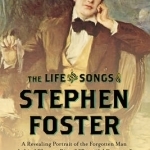
The Life and Songs of Stephen Foster: A Revealing Portrait of the Forgotten Man Behind Swanee River, Beautiful Dreamer, and My Old Kentucky Home
Book
The Life and Songs of Stephen Foster offers an engaging reassessment of the life, politics, and...
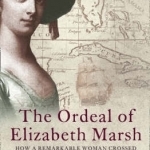
The Ordeal of Elizabeth Marsh: How a Remarkable Woman Crossed Seas and Empires to Become Part of World History
Book
From the author of 'Britons', the story of the exceptional life of the intrepid Elizabeth Marsh - an...
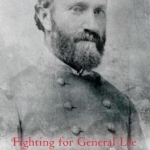
Fighting for General Lee: Confederate General Rufus Barringer and the North Carolina Cavalry Brigade
Book
Rufus Barringer fought on horseback during the Civil War with General Lee's Army of Northern...
ClareR (6096 KP) rated The Women of Troy in Books
Jan 11, 2022
The Women of Troy picks up where The Silence of the Girls finished. Greece has won. The men of Troy are dead, their wealth and women now belong to the Greeks, but due to the fact that the wind is blowing in the wrong direction, the Greeks are going nowhere. Someone must have done something to displease the Gods, but until they come to that conclusion, there’s a lot of eating, drinking, sports competitions and rape. The women, as is usual in any conflict, get the shitty end of the stick. They may not have been killed, but they face a lifetime of slavery and rape.
Briseis is lucky, in that she is now married to Alcimus and is now a respectable, protected woman. But she now feels as though she belongs to neither side. She knows how the female slaves feel: she was one of them once. But they don’t see her as one of them anymore, and she isn’t wholly Greek either. She does manage to see the main female characters from Troy, though. Cassandra makes an appearance - she is still telling everyone what will happen, and on one is believing her. Hecuba is being kept in comfort by Odysseus, but she has seen all but one of her sons killed, and her husband is lying unburied on the beach - she wants to see him sent off to the afterlife before she dies.
We even see Helen and how she’s getting on. Her husband has taken her back, but no one else can see why she hasn’t been killed. After all, she’s to blame for the whole situation, isn’t she?!
Amina is Briseis’ own slave, given to her by Alcimus. It’s clear that she doesn’t like Briseis - after all, Briseis hasn’t tried to convince Agamemnon to have proper funeral rites for Priam. I liked Amina. She stands by her convictions, no matter the consequences (and there are consequences).
In fact, they’re all strong women, trying their best in very difficult circumstances. I always enjoy Greek mythology re-telling, and this book really does it for me. I’d love to see if Pat Barker writes about the times after the Greeks return to their homes. What happens to Cassandra? Helen? And Briseis? Yes, I know I can look it up in any Greek mythology book, but Pat Barkers storytelling is so emotive and really compelling. I’ll be keeping my fingers crossed!
Briseis is lucky, in that she is now married to Alcimus and is now a respectable, protected woman. But she now feels as though she belongs to neither side. She knows how the female slaves feel: she was one of them once. But they don’t see her as one of them anymore, and she isn’t wholly Greek either. She does manage to see the main female characters from Troy, though. Cassandra makes an appearance - she is still telling everyone what will happen, and on one is believing her. Hecuba is being kept in comfort by Odysseus, but she has seen all but one of her sons killed, and her husband is lying unburied on the beach - she wants to see him sent off to the afterlife before she dies.
We even see Helen and how she’s getting on. Her husband has taken her back, but no one else can see why she hasn’t been killed. After all, she’s to blame for the whole situation, isn’t she?!
Amina is Briseis’ own slave, given to her by Alcimus. It’s clear that she doesn’t like Briseis - after all, Briseis hasn’t tried to convince Agamemnon to have proper funeral rites for Priam. I liked Amina. She stands by her convictions, no matter the consequences (and there are consequences).
In fact, they’re all strong women, trying their best in very difficult circumstances. I always enjoy Greek mythology re-telling, and this book really does it for me. I’d love to see if Pat Barker writes about the times after the Greeks return to their homes. What happens to Cassandra? Helen? And Briseis? Yes, I know I can look it up in any Greek mythology book, but Pat Barkers storytelling is so emotive and really compelling. I’ll be keeping my fingers crossed!
Gareth von Kallenbach (980 KP) rated The Promise (2017) in Movies
Jul 11, 2019
Roughly a year ago, I found myself in a heated exchange with a friend about full and appropriate representation of people and history in films. I discussed the merits of expanding the scope beyond films about slavery and segregation with respect to African-Americans and stories of despair for other marginalized groups. It is, for me, demeaning to a people’s contributions in society and trivializes experiences. After engaging in what seemed to be an hour, my friend focused more on what she had to say that considering what I was addressing. It proved true when she stated “Well… at least black people have movies about slavery! You should be happy. We don’t even have a movie about the Armenian Genocide!” I was shocked, momentarily. I had never stated that one group deserved more of the spotlight or one’s history is more important that another, just that we need to have appropriate representation and inclusion of stories. All of our stories should be told and shared, especially the ones that are not widely known, understood, or even having a place within social studies courses in our public schools.
I knew of the Armenian Genocide and had a general understanding about the atrocities committed by the Ottoman Empire. There are several international films that address what took place or have the Genocide as part of the story. Even My Big Fat Greek Wedding makes reference to how Greeks were brutalized by the Turks during the period. What we were missing, at least in the realm of American Cinema, was a representation for US audiences to witness the horrors that these people fell victim to and, for some, were able to survive. In The Promise, audiences will get a history lesson about man’s inhumanity to man.
When I first heard that this film was in production, I was interesting in how it would pan out. Would it be truthful, as painful as it may be? Would they overdo certain aspects? How much would they play with the truth? The filmmakers faced the same problems as those who brought forth Schindler’s List, The Pianist, and Life is Beautiful: How do you approach telling the story of genocide? How do you draw people in to a story that they may not be familiar with? Are people ready?
Summaries of the film that I read online made it seem as though this would be an Armenian version of Pearl Harbor in that this was a love story in the foreground of a film that features violence in the background. The summaries were misleading, maybe by design or maybe by mistake. The Promise, stars Oscar Isaac (Star Wars: The Force Awakens) as a young Armenia medical student, and Christian Bale (The Dark Knight) as a journalist for the associated press reporting on developments in the Ottoman Empire as war breaks out. The film whose description touts a love triangle in the midst of the Great War is far from what this films discusses and presents. There is a love story, however, it is not what the film is about or what is able to get the attention of the viewers.
The film reveals the deep held animosity of Armenians and other minority groups in the Ottoman Empire. It demonstrates the depth of mistrust and mistreatment of people who cast as “the other.” It is not simplistic in approach nor relying on over-the-top examples of violence in order for those watching to feel something. The development of events and characters permits the audience to connect with each of the characters, their families, their circumstances, and look for any moment in which they can escape the violence that is being committed to them. In no way does this film minimize what the victims went through. It doesn’t trivialize their experience in order to gain one’s attention.
The Promise satisfies the need for a discussion to emerge allowing for a truer examination of the genocide’s place in world history and within the framing of World War I. It presents a more representative picture of what people bore witness to or experienced themselves. With history, we are continuously searching for the truth and ensuring that history itself does not remained buried or ignored. This films serves the purpose in ensuring that more people are aware of not only the Armenian genocide, but all of the moving pieces that come with people fighting against an injustice or violence that is committed upon them because they are seen as less than or undesirable. It is my hope that with this film, studios see the necessity of bringing more stories of struggle, survival, and the will of humanity to overcome hardship and violence to audiences. The Promise although highly overdue, is essential, poignant, timely, and necessary in order for all of us to see that people are not forgotten.
I knew of the Armenian Genocide and had a general understanding about the atrocities committed by the Ottoman Empire. There are several international films that address what took place or have the Genocide as part of the story. Even My Big Fat Greek Wedding makes reference to how Greeks were brutalized by the Turks during the period. What we were missing, at least in the realm of American Cinema, was a representation for US audiences to witness the horrors that these people fell victim to and, for some, were able to survive. In The Promise, audiences will get a history lesson about man’s inhumanity to man.
When I first heard that this film was in production, I was interesting in how it would pan out. Would it be truthful, as painful as it may be? Would they overdo certain aspects? How much would they play with the truth? The filmmakers faced the same problems as those who brought forth Schindler’s List, The Pianist, and Life is Beautiful: How do you approach telling the story of genocide? How do you draw people in to a story that they may not be familiar with? Are people ready?
Summaries of the film that I read online made it seem as though this would be an Armenian version of Pearl Harbor in that this was a love story in the foreground of a film that features violence in the background. The summaries were misleading, maybe by design or maybe by mistake. The Promise, stars Oscar Isaac (Star Wars: The Force Awakens) as a young Armenia medical student, and Christian Bale (The Dark Knight) as a journalist for the associated press reporting on developments in the Ottoman Empire as war breaks out. The film whose description touts a love triangle in the midst of the Great War is far from what this films discusses and presents. There is a love story, however, it is not what the film is about or what is able to get the attention of the viewers.
The film reveals the deep held animosity of Armenians and other minority groups in the Ottoman Empire. It demonstrates the depth of mistrust and mistreatment of people who cast as “the other.” It is not simplistic in approach nor relying on over-the-top examples of violence in order for those watching to feel something. The development of events and characters permits the audience to connect with each of the characters, their families, their circumstances, and look for any moment in which they can escape the violence that is being committed to them. In no way does this film minimize what the victims went through. It doesn’t trivialize their experience in order to gain one’s attention.
The Promise satisfies the need for a discussion to emerge allowing for a truer examination of the genocide’s place in world history and within the framing of World War I. It presents a more representative picture of what people bore witness to or experienced themselves. With history, we are continuously searching for the truth and ensuring that history itself does not remained buried or ignored. This films serves the purpose in ensuring that more people are aware of not only the Armenian genocide, but all of the moving pieces that come with people fighting against an injustice or violence that is committed upon them because they are seen as less than or undesirable. It is my hope that with this film, studios see the necessity of bringing more stories of struggle, survival, and the will of humanity to overcome hardship and violence to audiences. The Promise although highly overdue, is essential, poignant, timely, and necessary in order for all of us to see that people are not forgotten.
Rachel King (13 KP) rated Vampire Academy in Books
Feb 11, 2019
I found this book a bit unusual in that the background information that is usually relayed within the first chapter or so is not in this book. Instead, I am plunged into the action as if I were tagging along with Rose and not given relevant background information until it is actually useful to the plot. I prefer this rarely-used method because then I don't need to go back and find the definitions and explanations of things that I have forgotten when the specific topic is not addressed for half the book.
I really like the way that Mead separates the "good" vampires from the "bad" vampires with the Moroi and Strigoi (although I would love a pronunciation guide) as almost two different species. There is actually a major consequence to being evil - loss of magic - with no exceptions. Mead builds an excellent world of clear-cut rules that I can appreciate.
The interplay between Rose and Lissa is fascinating both for Rose's unwavering dedication to Lissa, as well as Lissa's almost surreal innocence. If it weren't for Lissa's "madness" she would seem almost faultless. Normally, I find characters like this to not be believable, but since she is bonded to Rose, it almost seems as if they are two halves of the same person, one dark and one light. The dhampir lifestyle that Rose is a representative of seems like a cross between brainwashing, slavery, and the use of a caste system, but Rose seems to be a very willing participant. I can't decide if I like this or not, but Rose seems to be quite happy with it, especially given her abilities.
What I like most is Rose's relationship with Dimitri. In a word - hot! There is nothing like a forbidden romance to make me want to keep reading way past my bedtime as I root for every training session to go beyond the norm. Of all the ways for Victor Dashkov to distract Rose and Dimitri, there are worse ways than the much-needed lust spell. That was a fantastic way to make them aware of their feelings for each other, which may never have happened otherwise due to each other's strong sense of duty and responsibility.
The one minor thing that bothers me about this world that Mead has constructed as the lack of addressing the topic of money. For instance, Rose has been attending the Academy almost since she was born, but who pays for that?
I really like the way that Mead separates the "good" vampires from the "bad" vampires with the Moroi and Strigoi (although I would love a pronunciation guide) as almost two different species. There is actually a major consequence to being evil - loss of magic - with no exceptions. Mead builds an excellent world of clear-cut rules that I can appreciate.
The interplay between Rose and Lissa is fascinating both for Rose's unwavering dedication to Lissa, as well as Lissa's almost surreal innocence. If it weren't for Lissa's "madness" she would seem almost faultless. Normally, I find characters like this to not be believable, but since she is bonded to Rose, it almost seems as if they are two halves of the same person, one dark and one light. The dhampir lifestyle that Rose is a representative of seems like a cross between brainwashing, slavery, and the use of a caste system, but Rose seems to be a very willing participant. I can't decide if I like this or not, but Rose seems to be quite happy with it, especially given her abilities.
What I like most is Rose's relationship with Dimitri. In a word - hot! There is nothing like a forbidden romance to make me want to keep reading way past my bedtime as I root for every training session to go beyond the norm. Of all the ways for Victor Dashkov to distract Rose and Dimitri, there are worse ways than the much-needed lust spell. That was a fantastic way to make them aware of their feelings for each other, which may never have happened otherwise due to each other's strong sense of duty and responsibility.
The one minor thing that bothers me about this world that Mead has constructed as the lack of addressing the topic of money. For instance, Rose has been attending the Academy almost since she was born, but who pays for that?
Kevin Wilson (179 KP) rated Detroit: Become Human in Video Games
Nov 9, 2018
Best story of the year (3 more)
Incredible voice acting
So many different possibilities
Amazing replayability
An almost perfect game let down by 1 or 2 slow parts
Wow what a game. I have to say straight away that game of the year this year shouldn't be a thing. There are so many incredible games out this year. Red dead redemption 2 and God of war are incredible games and 1 of them to me will end up being game of the year but if it was based on story alone then this would win easy.
The concept has always intrigued me. The whole idea of there being androids then they develop a consciousness and gaining free will. I can see our world going there and this showed that world perfectly. Throughout the world you can find magazines and I found myself reading these and being in awe at how accurate they are. They all felt they could each be a plot to an episode of black mirror. Everything from there being less babies born because people are having sex with androids more to music concerts not being a thing due to VR. There were a lot of political, racism, slavery and abuse messages throughout the game which felt very relevant.
The gameplay was great. It felt like an interactive movie with quick time events that actually mattered. There was genuine fear for these characters since any could die. There was a certain mission that was extremely slow paced and I got bored a little but luckily that was the only part. I fell in love with the characters and their relationships towards humans and other androids. The choices given to me felt like I was making my own personal story. Acting was incredible and it was graphically beautiful. The expressions were incredible.
The flowchart at the end of each mission a welcome addition. You are able to see all the many paths you could take without seeing what they actually were. You could see the complex mind of David cage behind this chart and it looked incredible. This got me very excited to go back in the future to try out the different paths and see what happens.
This is another incredible exclusive for ps4 and it should not be missed. A beautiful score and complex writing make this a game that leaves you thinking weeks after finishing and I look forward to another playthrough and maybe even another game in this world.
The concept has always intrigued me. The whole idea of there being androids then they develop a consciousness and gaining free will. I can see our world going there and this showed that world perfectly. Throughout the world you can find magazines and I found myself reading these and being in awe at how accurate they are. They all felt they could each be a plot to an episode of black mirror. Everything from there being less babies born because people are having sex with androids more to music concerts not being a thing due to VR. There were a lot of political, racism, slavery and abuse messages throughout the game which felt very relevant.
The gameplay was great. It felt like an interactive movie with quick time events that actually mattered. There was genuine fear for these characters since any could die. There was a certain mission that was extremely slow paced and I got bored a little but luckily that was the only part. I fell in love with the characters and their relationships towards humans and other androids. The choices given to me felt like I was making my own personal story. Acting was incredible and it was graphically beautiful. The expressions were incredible.
The flowchart at the end of each mission a welcome addition. You are able to see all the many paths you could take without seeing what they actually were. You could see the complex mind of David cage behind this chart and it looked incredible. This got me very excited to go back in the future to try out the different paths and see what happens.
This is another incredible exclusive for ps4 and it should not be missed. A beautiful score and complex writing make this a game that leaves you thinking weeks after finishing and I look forward to another playthrough and maybe even another game in this world.
JT (287 KP) rated Abraham Lincoln: Vampire Hunter (2012) in Movies
Mar 10, 2020
Of all the absurd film titles this has to be right up there. Abraham Lincoln: Vampire Hunter is a film that you can tune into and lose yourself with – nothing more than that.
Directed by Timur Bekmambetov (Wanted) the film initially focuses on the early life of one Abraham Lincoln (Benjamin Walker) whose mother is killed at the hands of a vampire.
Fueled by revenge he goes out and tries to avenge her death, unsuccessfully at first. He is then taken under the wing of Henry Sturges (Dominic Cooper) who shows him the proper ways to fight back, in a training montage that makes Rocky’s wood chopping skills look pathetic.
Sturges leaves Lincoln to go off on his own but sends him the names of undead that he has to go out and kill on a regular basis, while trying to hide his nocturnal hobby from those closest to him. First thing to note with this film is many of the techniques that made Wanted a unique action flick are used considerably throughout, a bit too much for me.
CGI in film should be used sparingly as far as I’m concerned, but when faced with a scene where there is no feasible way you could shoot for real then it’s a perfect solution. When Lincoln is giving chase to Jack Barts (Marton Csokas) across a stampede of wild horses it provides a great action sequence for which CGI comes into its own.
In-fact pretty much all the action sequences use this, and with the climactic train sequence proving a highlight to the end of the film it’s not anywhere near enough to make it a standout, you can only hide behind special effects for so long before you’re going to get found out.
There is a pause in proceedings, a chance to catch breath from all that over the top action, as Lincoln puts down his silver coated axe and follows a career in politics looking to abolish slavery as well as vampires. His lifelong friend Will Johnson (Anthony Mackie) also joins him on this quest as his personal Presidential aide.
Of course it turns out that vampires are unable to kill their own as we see from a brief flash back where Dominic Cooper is mindlessly attacked and his beloved taken from him, so he clearly has a motive as well.
It’s all harmless fun, and while the late Abe Lincoln provides some small resemblance to Liam Neeson with a beard (was it only me that thought that) it’s a far fetched and totally ludicrous story that you cannot take too seriously for a minute.
Directed by Timur Bekmambetov (Wanted) the film initially focuses on the early life of one Abraham Lincoln (Benjamin Walker) whose mother is killed at the hands of a vampire.
Fueled by revenge he goes out and tries to avenge her death, unsuccessfully at first. He is then taken under the wing of Henry Sturges (Dominic Cooper) who shows him the proper ways to fight back, in a training montage that makes Rocky’s wood chopping skills look pathetic.
Sturges leaves Lincoln to go off on his own but sends him the names of undead that he has to go out and kill on a regular basis, while trying to hide his nocturnal hobby from those closest to him. First thing to note with this film is many of the techniques that made Wanted a unique action flick are used considerably throughout, a bit too much for me.
CGI in film should be used sparingly as far as I’m concerned, but when faced with a scene where there is no feasible way you could shoot for real then it’s a perfect solution. When Lincoln is giving chase to Jack Barts (Marton Csokas) across a stampede of wild horses it provides a great action sequence for which CGI comes into its own.
In-fact pretty much all the action sequences use this, and with the climactic train sequence proving a highlight to the end of the film it’s not anywhere near enough to make it a standout, you can only hide behind special effects for so long before you’re going to get found out.
There is a pause in proceedings, a chance to catch breath from all that over the top action, as Lincoln puts down his silver coated axe and follows a career in politics looking to abolish slavery as well as vampires. His lifelong friend Will Johnson (Anthony Mackie) also joins him on this quest as his personal Presidential aide.
Of course it turns out that vampires are unable to kill their own as we see from a brief flash back where Dominic Cooper is mindlessly attacked and his beloved taken from him, so he clearly has a motive as well.
It’s all harmless fun, and while the late Abe Lincoln provides some small resemblance to Liam Neeson with a beard (was it only me that thought that) it’s a far fetched and totally ludicrous story that you cannot take too seriously for a minute.
